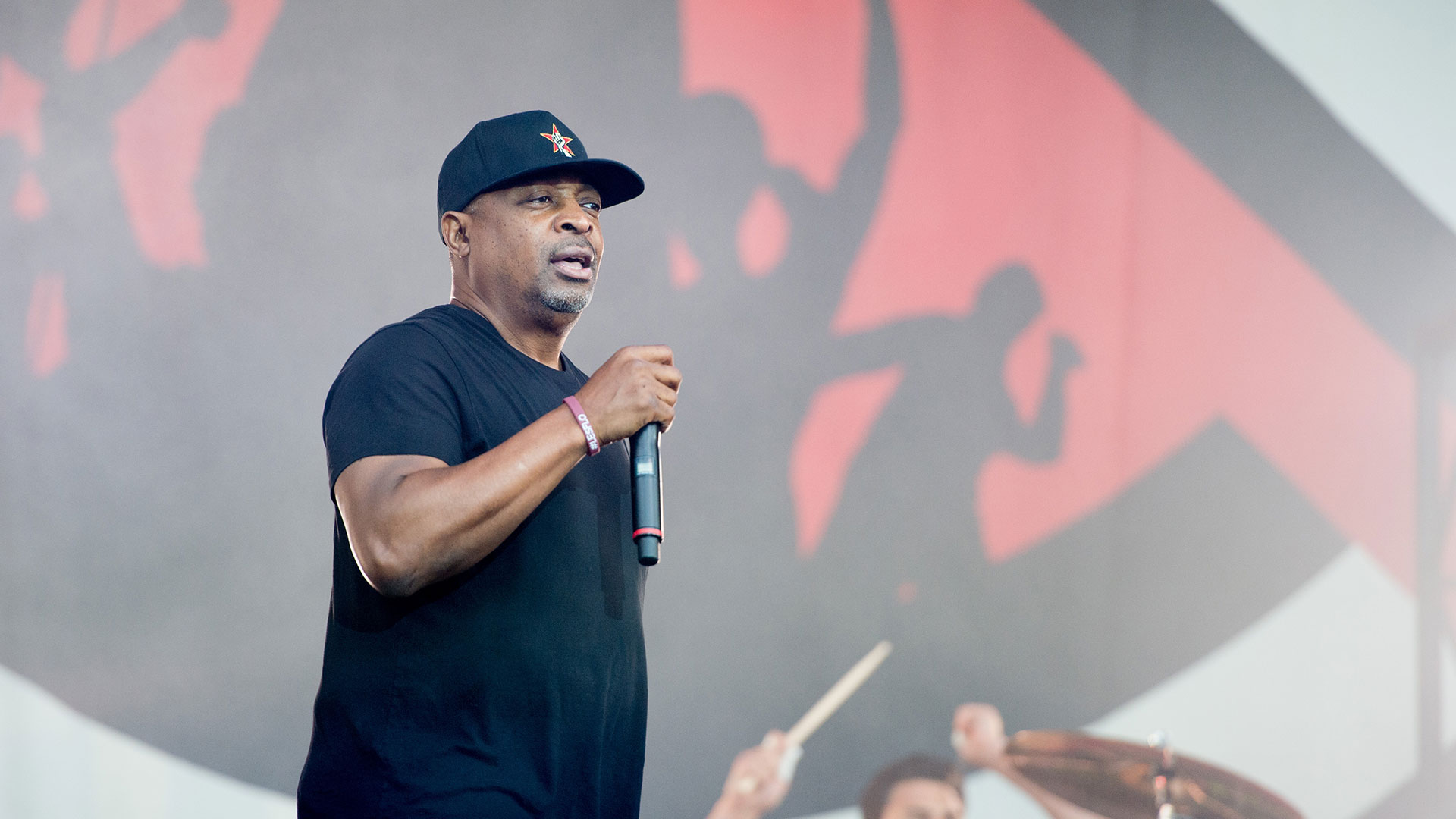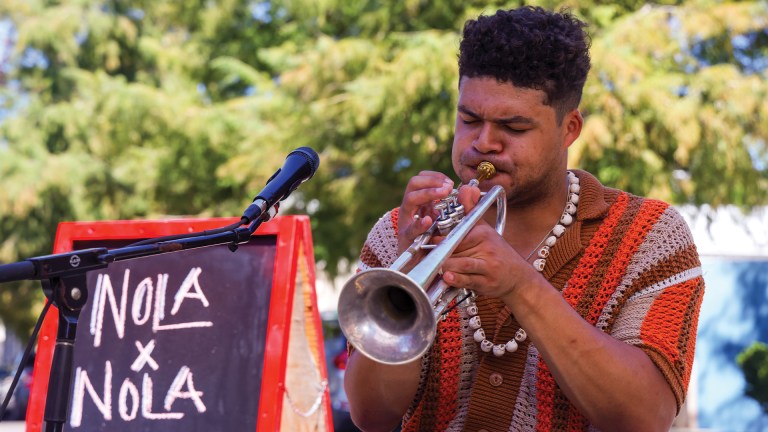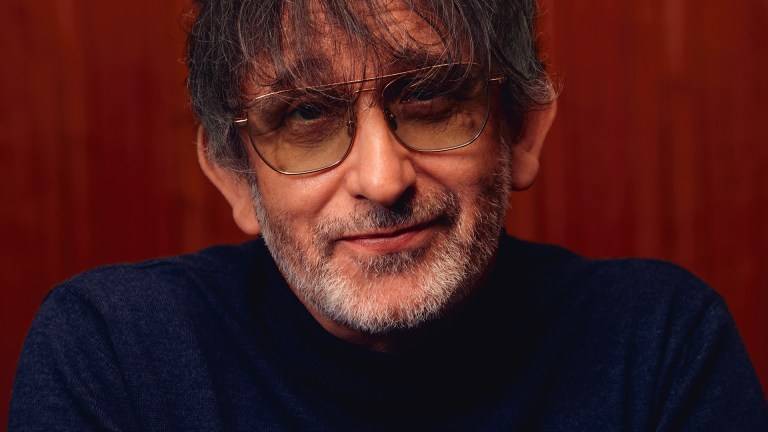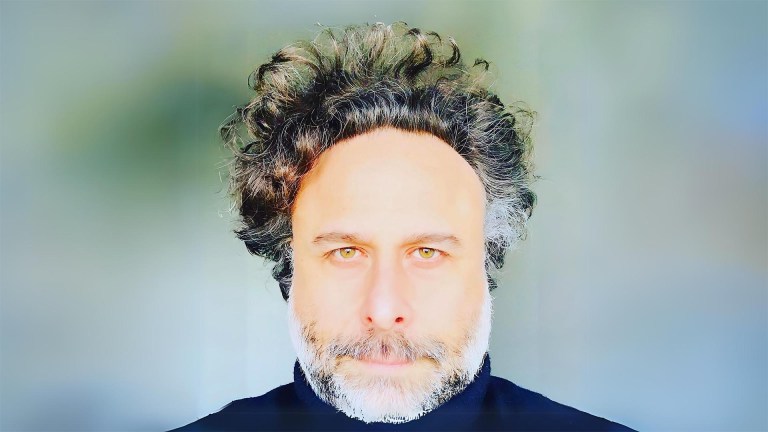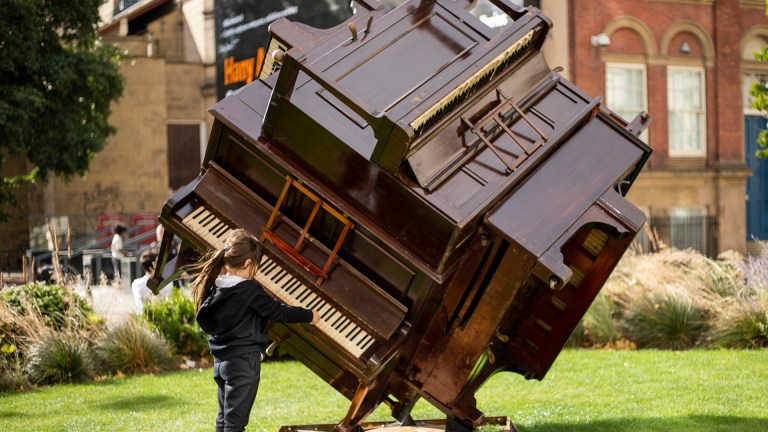When I was younger I wanted to be a sports announcer. I was a fanatic – football, baseball, basketball. In high school, we played all the time. My other passion was art. I was drawing and drafting, and by the time I was 16, on my way to college to become a professional illustrator. I enjoyed school. It really enhanced my ambition to be a great illustrator. I didn’t just enjoy art, I was art. I liked all the classical artists that I learned about – Caravaggio, Rembrandt – and all the architectural designers like Frank Lloyd Wright. Drawing was the main expression of my creativity then, more than music. Though I do remember buying my first 7-inch 45 in 1977, a song called Double Dutch by the Fatback Band.
When I started college, there was no such thing as rap on records. I enjoyed music casually. Halfway through college my direction changed. I started to get involved with music at the radio station. When rap records started to become a reality, that’s when I thought, I can do that. But I never thought I had the abilities to be involved in music other than maybe as a disc jockey. That was the only way I thought I could use my voice. I knew I definitely couldn’t sing.
My family was very cool. My father had the largest voice ever known. He was such a strong, yet caring, kind, loving individual. My mother was very opinionated and very loving at the same time. They weren’t locked into any particular occupation, they just did what they wanted to do. My dad did shipping, and my mom did secretarial work. She also was an innovator – she started the Roosevelt community theatre, and that got me on stage for the first time, so that was a big influence on me. They exposed me to the arts, which became such a huge factor in my life. They were very creative, radical, independent-thinking people and they encouraged me to be an independent thinker too.
If you met the teenage me, you’d find me a quiet boy, passionate about sports and art and how voices come across on the radio. I’d like him if I met him now – he wouldn’t be offensive and he was into his thing. I was never affected by peer pressure. The arts were my refuge so I never had to ask anyone else for any kind of security. I never asked anybody to entertain me. I entertained myself and I was satisfied with that.
Once it’s noticed that you care, people immediately term you political. For me, it’s just about being aware and awake. So in that sense, you’re either political or you’re unconscious, dumb and stupid. When I was 20 I paid attention. My parents were politically aware. My mother was very clear about me not going to war, not joining the army. She was clear about me being a conscientious objector. Muhammad Ali was one of my heroes, from a young age. He transcended sport, and when we got Public Enemy together I wanted to transcend hip-hop. Ali was my blueprint for that. Considering where we’re at now, any artist telling people they don’t have to think about things with meaning, they’re doing a disservice to young adults.
Hearing my first rap record – that was a lightbulb going on above my head. Before that there was no light. I thought it was impossible to put rap on a recording. I wanted to get into the music business, but at first my aim was to be a graphic designer, working on record sleeves. Then I heard my first rap record – King Tim III (Personality Jock) by the Fatback Band (from 1979). The first time I was onstage in terms of music was working with Spectrum City, a group of DJs and MCs, with Hank and Keith Shocklee [whose Bomb Squad team went on to produce Public Enemy’s albums]. I was an MC, and I was also working with the crew. That was sort of exciting. So I made a decision to go down that road. And once I make a decision to do something I look at it as being permanent. I was never going to do something half-assed then go get a job I didn’t really want to do. I was clear who I was and what I wanted to do.
